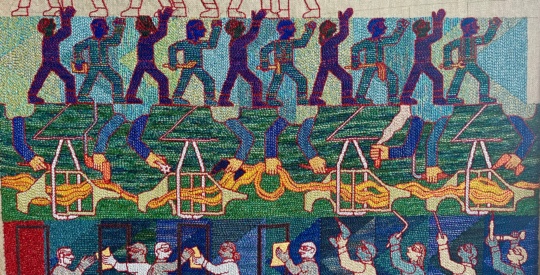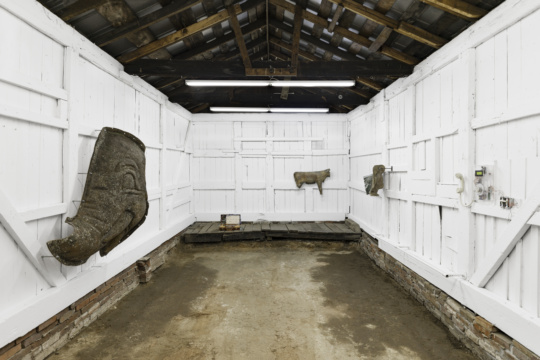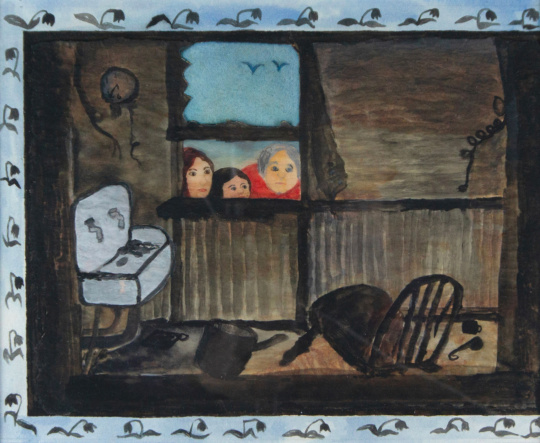A man was lynched by the police last week.*
On May 25, George Floyd, a forty-six year-old father from Minneapolis, tragically joined a decades-long list of Black men, women, queer and trans people, and children who have been brutally murdered by police in this country. Burnaway honors the memory of George Floyd, as well as the memories of Breonna Taylor, Ahmaud Arbery, Tony McDade, and the thousands of other Black Americans whose lives have been destroyed by a punitive white supremacist system of anti-Black policing and mass incarceration. Burnaway supports and stands with the international uprisings that have emerged in response to George Floyd’s murder and is committed to acknowledging and confronting the anti-Blackness within our organization, within local, regional, and national cultural sectors, and within our own lives.
On Monday, June 1, Burnaway hosted a print sale with artist Jiha Moon to raise $1,000 for Metro Atlanta Mutual Aid, an Atlanta organization that provides aid to BIPOC individuals in need due to the unequal and acute impacts the COVID-19 pandemic and economic fallout have had on communities of color and Black people in particular. We also compiled a reading list of stories from Burnaway’s recent past, largely written by Black editors and contributors to the magazine, that address issues of white supremacy and racial injustice. This was not enough. In light of continued protests and escalating police violence against protestors in the region, we recognize that there is much more that must be said and done.
This is what we demand of ourselves and our peers:
- Institutions in the South must stop sharing the images of works by Black artists on social media (often without consent from living artists) as their only or primary way of showing solidarity in this moment. This again puts the responsibility on Black people to do the work of advocating for their own significance and humanity.
- Institutions in the South must incorporate action plans in their public statements of support that should include, at bare minimum: funds allocated to financially support Black members of their community; an acknowledgement of their own complicity in institutional racism, including a thorough reevaluation of ongoing relationships with police; and an announcement of their strategies for diversifying boards and artistic leadership where that remains an issue. Burnaway will likewise work to recruit and retain more BIPOC board members in the coming months and create structures of accountability that ensure future board members of color are integral to the organization’s decision making.
- Art galleries and other cultural businesses should not share images of property damage from protests or use their platforms to decry looting. Property damage and violence are not equivalent. It is unacceptable and irresponsible to contribute to a narrative focused on property damage when you have regularly profited off of Black culture and the work of Black artists.
- Funders in the South must make their grant applications more accessible to Black and Black-led cultural organizations. Government funding in particular is extraordinarily complicated and time-consuming to access. The community panels that jury government grants need to be better trained and include at least 50% BIPOC individuals.
Burnaway will announce a $5,000 fund to cover ten grants of $500 to BIPOC artists working in the South in the coming weeks. (You can contribute to that fund here.) We encourage other cultural organizations and institutions to also directly allocate funds for Black artists, cultural workers, and communities.
Burnaway commends the actions of organizations such as the Contemporary Arts Center in New Orleans—which donated $10,000 to local organizations fighting mass incarceration—for their leadership this week in modeling how cultural institutions in the South should be responding to this moment. Vague institutional statements employing the corporate language of “diversity and inclusion” are not enough when there are lives on the line. We must be explicit about the racism and inequity we aim to confront and the concrete actions we are taking to do so.
In solidarity,
Burnaway’s Staff, Editors-at-Large, and Board of Directors
*This is a reference to a 2015 artwork by Dread Scott and to the NAACP Flag of 1916.




